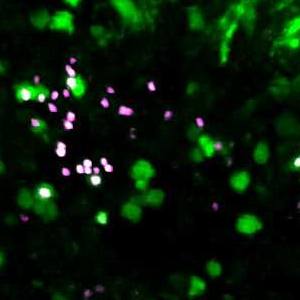-
Mayo Clinic Q and A: Considering switching to a vegetarian diet
 DEAR MAYO CLINIC: I am 58 and considering becoming a vegetarian. I know it will be important to make sure I get enough protein, but are there other nutrients I should focus on, as well?
DEAR MAYO CLINIC: I am 58 and considering becoming a vegetarian. I know it will be important to make sure I get enough protein, but are there other nutrients I should focus on, as well?
ANSWER: Following a vegetarian diet is a healthy way of eating. Multiple studies have linked vegetarian diets to a reduced incidence of chronic disease and cancer. Excluding meat or animal products makes a diet healthier, but there are other factors to consider.
As with all dietary patterns, it’s important not to rely too heavily on processed foods, which can be high in calories, sugar, fat and sodium. Vegetarians have an advantage in that they usually eat more fruits, vegetables and whole grains than people who consume meat.
The key to a healthy vegetarian diet, as with all diets, is to include a variety of foods. No single food can provide all the nutrients your body needs. It’s especially important for older adults to be aware of their nutritional needs, since aging can increase the risk of nutritional deficiencies. Talk with your doctor or a registered dietitian about developing a healthy vegetarian eating plan that meets your needs. In general, though, pay attention to these nutrients:
- Calcium and vitamin D — Calcium helps maintain strong bones and prevent fractures, which is especially important as you age. Milk and dairy foods are highest in calcium. However, dark green vegetables are good plant sources when eaten in sufficient quantities. Calcium-enriched and fortified products, including juices and cereals, are other options. Vitamin D also plays an important role in bone health, immune function and in the reduction of inflammation. Vitamin D is added to milk, some brands of soy and rice milk, and some cereals. If you don’t eat enough fortified foods and have limited sun exposure, you may need a vitamin D supplement derived from plants. Of note is that research studies suggest a high intake of vegetables and fruits is associated with increased bone mineral density, which is probably due to mechanisms other than calcium or vitamin D.
- Vitamin B-12 — Vitamin B-12 is necessary to produce red blood cells and prevent anemia. Dairy and eggs are good sources, if you include these in your diet. Older adults tend to have more difficulty absorbing vitamin B-12 from food and may want to consider fortified foods or vitamin supplements to make up for any deficiencies. This is especially true for those on a vegan diet, which excludes dairy products.
- Protein — Protein helps maintain healthy skin, bones, muscles and organs. Eggs and dairy products are good sources, and you don’t need to eat large amounts to meet your protein needs. You can get sufficient protein from plant-based foods (e.g., soy products, legumes, lentils, seeds, nuts and whole grains) if you eat a variety throughout the day.
- Omega-3 fatty acids — Omega-3 fatty acids are important for heart health. Diets that don’t include fish and eggs are generally low in active forms of omega-3 fatty acids. Canola oil, soy oil, walnuts, ground flaxseed and soybeans are good sources of a plant-based form of omega-3s called alpha-linolenic acid. However, conversion of alpha-linolenic acid to the omega-3 types that are best for heart health is much less efficient.
- Iron and zinc — Iron is a crucial component of red blood cells. Dried beans and peas, lentils, enriched cereals, whole-grain products, dark leafy green vegetables, and dried fruit are good sources of iron. Because iron isn’t as easily absorbed from plant sources, the recommended intake of iron for vegetarians is almost double that of nonvegetarians. To help your body absorb iron, eat foods rich in vitamin C (e.g., strawberries, citrus fruits or tomatoes) at the same time as you’re eating iron-containing foods. As with iron, zinc isn’t as easily absorbed from plant sources as it is from animal products. Cheese is a good option if you eat dairy. Plant sources of zinc include whole grains, soy products, legumes, nuts and wheat germ.
- Iodine — Iodine is a component in thyroid hormones, which help regulate metabolism, growth and function of key organs. Plant-based diets are typically low in iodine. However, just one-fourth of a teaspoon of iodized salt a day provides a significant amount of iodine.
With just a little planning, a vegetarian diet can easily provide you with all of the nutrition you need and likely will improve your health. If you need a good starting point for additional information, including recipes, visit Vegetarian Nutrition — a website created by the Academy of Nutrition and Dietetics. (adapted from Mayo Clinic Health Letter) — Dr. Donald Hensrud, Healthy Living Program, Mayo Clinic, Rochester, Minnesota







